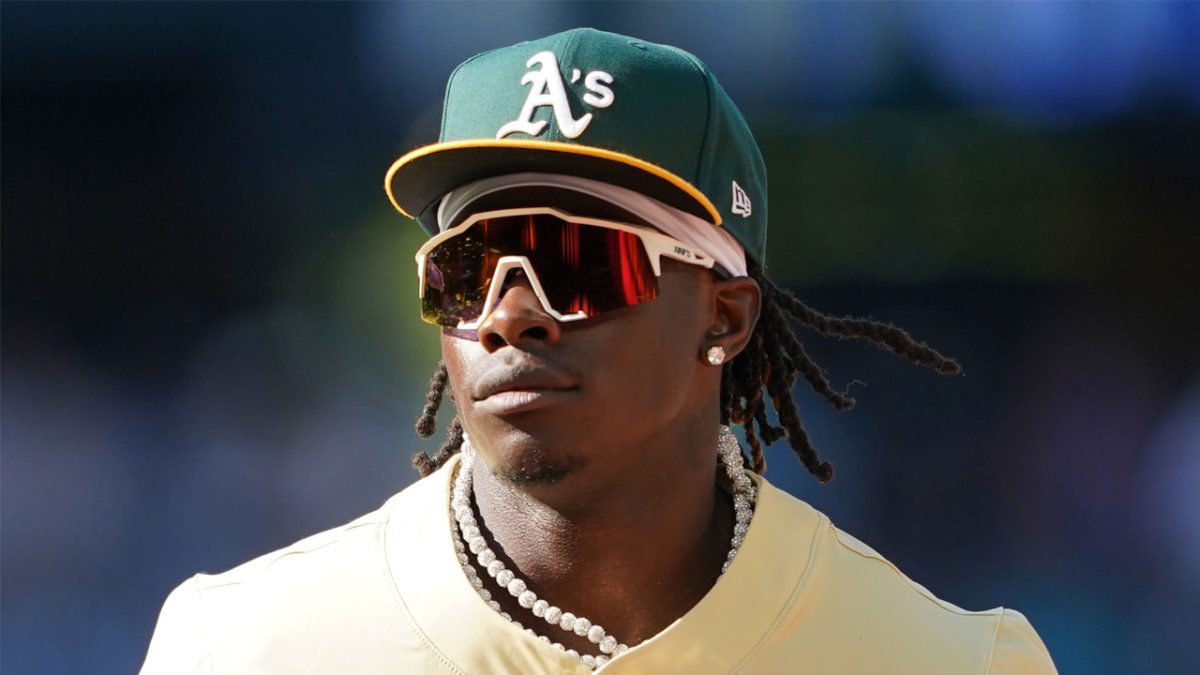The stories have the feel of something ripped off from a Hollywood script.
All the conflict, humor and triumph of the early 1970’s Oakland A’s did, in fact, hit the big screen Thursday night. The best thing is that all the anecdotes are true.
The MLB Network held an advance screening of its newest documentary, “The Swingin’ A’s,” which chronicles the roller coaster ride of the 1972-74 A’s, winners of three consecutive World Series.
Stay in the game with the latest updates on your beloved Bay Area and California sports teams! Sign up here for our All Access Daily newsletter.
The film, which debuts Tuesday at 6 p.m. on the MLB Network, features revealing interviews with lots of key players from that era —Vida Blue, Rollie Fingers, Reggie Jackson, Gene Tenace, Sal Bando, Ray Fosse and Joe Rudi among them. Blue attended the premiere and took part in an audience Q&A hosted by the MLB Network’s Matt Vasgersian (an East Bay native and self-described A’s diehard).
“The Swingin’ A’s” is not so much a nostalgic recap of those seasons, but an honest and entertaining account of just how dysfunctional the environment was with this bunch, even as the A’s were building one of baseball’s top dynasties.
A small group of media attended Thursday’s premiere at the New Parkway Theatre in Oakland, but most of the seats in the small venue were filled by fans who cheered often throughout the one-hour documentary.
Not surprisingly, the film centers around the friction between A’s players and then-team owner Charlie Finley, the eccentric outside-the-box thinker whose penny-pinching ownership style quickly wore thin with players.
Athletics
Find the latest Athletics news, highlights, analysis and more with NBC Sports Bay Area and California.
One of the more entertaining moments revolves around Jackson showing up to spring training in 1972 with a beard, a no-no under Finley. The owner offered $300 to any of the other players who grew a mustache, thinking that if facial hair became so commonplace it would persuade Jackson to eventually shave.
Instead, the idea caught fire throughout the clubhouse, and the heavy facial hair came to symbolize the free-spirit mentality of those A’s teams that ran so counter to other major league clubs. Fingers’ handlebar mustache, of course, became iconic.
“The only reason I grew this thing was to get $300 out of Charlie,” Fingers shares.
Also included is the entertaining story of young Stanley Burrell, who became an A’s batboy, eventually was granted a “vice president” title by Finley and acted as the owner’s eyes and ears in the clubhouse. Burrell, as is well-documented, went on to gain world fame as rapper MC Hammer. The Oakland native narrates the documentary.
The A’s fought with each other in the clubhouse, but above all else, they were a tight-knit bunch that formed a united front in opposition to their owner, who didn’t stand for having his authority challenged. But the film also takes care to mention the good that Finley did, such as the time he helped pay for medical expenses for a player’s wife. And, as A’s players acknowledge, Finley deserves credit for putting together this championship roster in the first place.
Although “The Swingin’ A’s” might leave fans longing for the glory days, they also might notice some parallels to present-day A’s clubs.
There’s plenty of footage of home games taking place in front of thousands of empty seats at the Coliseum. And after Finley started disassembling the roster, selling off his star players or letting them walk via free agency following the 1974 championship, it left a feeling of speculation — how much more success could the A’s have enjoyed if they had held on to their best players?
That’s a question that current A’s fans certainly can relate to.




